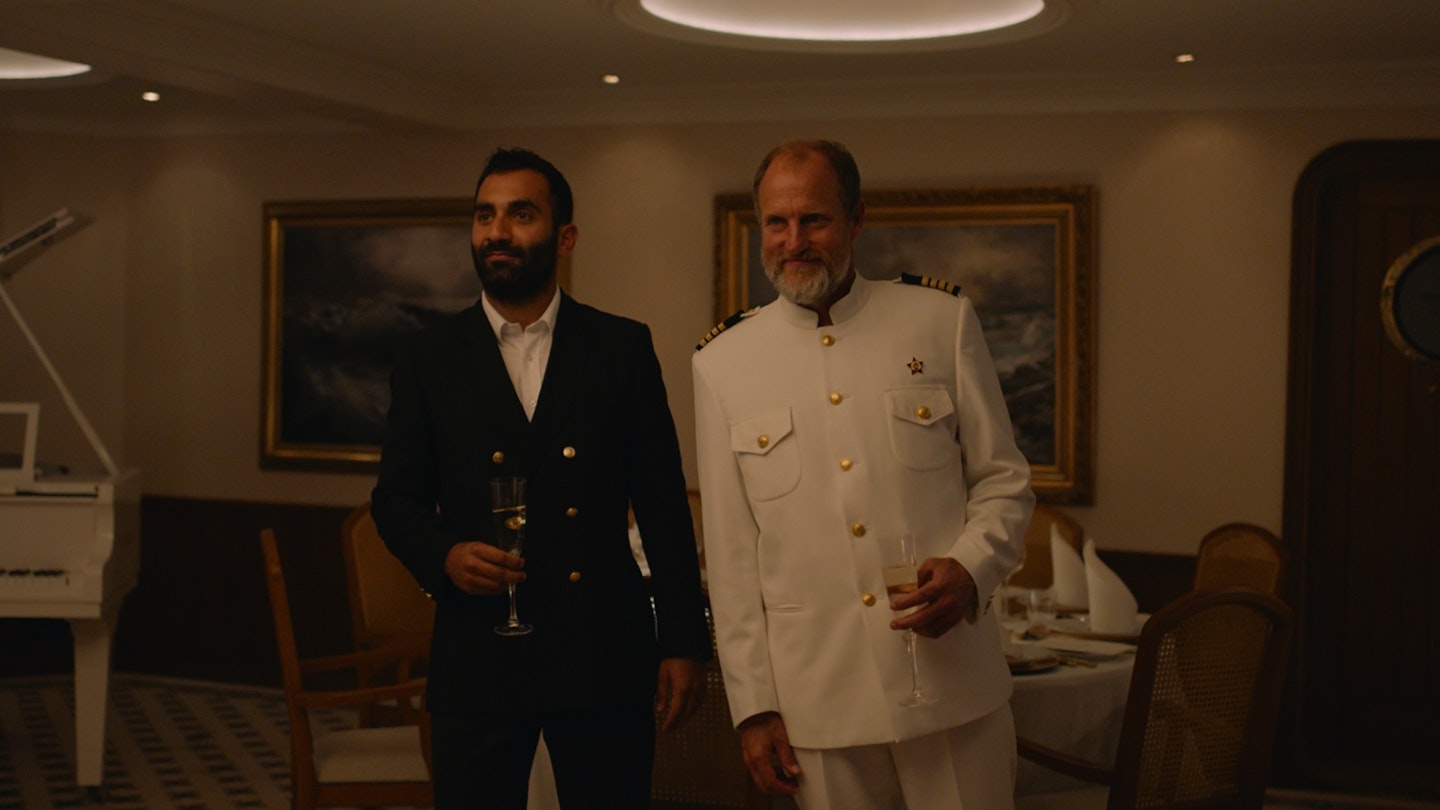Ruben Östlund loves to take the piss. The Swedish director has made a habit of it in his films, delivering scathing satires of family dynamics (Force Majeure) or the pretensions of the art world (The Square). This time, the effective enfant terrible of European cinema trains his eye on the wealthy and the privileged, though perhaps not in quite the way you would think; his sixth film is as much a farcical comedy as it is a searing indictment.
The film is divided into three distinct chapters. The first act establishes a very modern supermodel power couple, Carl (Harris Dickinson) and Yaya (Charlbi Dean, tragically her final film role), and Östlund’s script delights in poking fun at the fatuousness and status anxieties of the fashion world. (It’s here that the film gets its title — derived from a term casting agents use to describe a triangular area of the face supposedly most prone to wrinkles.)

Then, in the film’s middle section, the couple set sail for a trip on a luxury yacht, invited there for their influencer clout: new money, contrasted with old money. The Insta-influencers rub shoulders with aristocratic Brits who politely explain their family business is in weapons of mass destruction, plus a drooling Russian oligarch (deliciously played by Croatian-Danish actor Zlatko Burić — an oligarch specialist) who made his fortune in waste management, the self-described "king of shit".
Östlund’s filmmaking is pointed, almost sarcastic, and about as subtle as a gold-encrusted sledgehammer.
Finally, when disaster strikes the boat, the third act becomes its own thing entirely, and the film turns into an examination of what happens when the status quo of power, class and currency is recalibrated. Throughout, Östlund’s filmmaking is pointed, almost sarcastic, and about as subtle as a gold-encrusted sledgehammer; there’s nothing either discreet or charming about these bourgeoisie. But it is confidently delivered and enjoyably presented, a vigorously compelling riot of gaudiness. It’s almost like watching a nature documentary: you can’t help but be fascinated and repelled by these grotesque, alien creatures.
The carnival of excess is all staged with immense immediacy — never more so than in the central, 15-minute set-piece of the film. It begins with a captain’s dinner of the ocean’s most unappetising seafood during a stormy night; it ends with nearly all the passengers falling victim to violent sickness and diarrhoea, filmed with the kind of explicit scatological fireworks that would make Monty Python’s Mr Creosote blush. No filmmaker has ever before depicted the inglorious act of coming-out-at-both-ends with such disgusting lucidity.
As the walkouts at its Cannes premiere would suggest, this is arthouse comedy at its most juvenile; filthily fun as they are, sequences like that have about as much depth as a toilet bowl. But it is far too enjoyable a ride to care too much: as the cost-of-living crisis deepens and a recession looms, there’s something acutely cathartic in watching the guts of rich people being emptied out for our pleasure.



